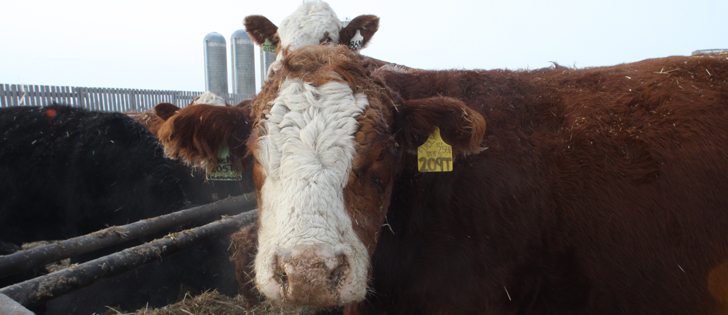Cattle slaughter | Producers losing confidence in council’s ability to expand processing in province
Western Producer Brandon reporter Robert Arnason looks at the Manitoba Cattle Enhancement Council and the growing producer frustration over its inability to bring a cattle slaughter plant to the province.
Manitoba Beef Producers voted almost 12 months ago to end a checkoff that funds the Manitoba Cattle Enhancement Council, which is mandated to expand beef processing in the province.
Cattle producers in Manitoba have grown increasingly frustrated with the checkoff since that resolution was passed in November, said MBP general manager Cam Dahl.
He said many producers have lost confidence in MCEC and don’t believe the council will ever build a 250 to 500 head per day slaughter plant in Winnipeg, which has remained on the drawing board since 2008.
Read Also

Organic farmers urged to make better use of trade deals
Organic growers should be singing CUSMA’s praises, according to the Canadian Chamber of Commerce.
However, the resolution and the related negative opinions represent a small faction of Manitoba cattle producers, said a MCEC spokesperson
“From our point of view, this is not the time to circle the wagons and start firing inward. This is a project that will be good for the industry,” said Adam Dooley, communications manager for MCEC and ProNatur, the name of the proposed slaughter plant.
MCEC, which is funded by a voluntary $2 per head levy and matching funds from the province, bought a former Maple Leaf Foods hog plant in Winnipeg in 2008. It plans to turn the site into a processing plant that will produce halal and kosher beef.
It was scheduled to open in 2010, but MCEC still hasn’t broken ground. It hasn’t found individuals or companies willing to invest in the $40 million plant. Given the delay, producer frustration is understandable, Dooley said.
“We never expected it ourselves to take this long.”
However, he said producers shouldn’t give up on the Winnipeg plant because Manitoba desperately needs a federally inspected beef processor.
“I think we can all agree there are many things that the industry needs. One of the most important is, without a doubt, local beef slaughter capacity.”
Manitoba cattle producers earn $130 less per fed steer than ranchers in Alberta because of transportation and marketing costs, he added.
Dooley insisted that ProNatur is economically sound.
“We have multiple customers that have signed a letter of intent. One customer has signed a letter of intent to take 100 percent of the production from this plant. So if anyone is doubting the viability of this plant, or whether there is actual market demand for it, that should answer the question.”
Construction may begin shortly if MCEC finalizes a couple of deals with potential investors, he added.
Dooley said MCEC statistics indicate Manitoba cattle producers do support the council: only 15 percent of Manitoba’s 8,700 cattle producers requested a check-off refund in 2010.
However, the statistics also indicate that MCEC refunds 30 to 40 percent of the checkoff each year.
“What that tells us is that there are some large individual operations that are requesting refunds,” Dooley said. “But the vast majority of producers are not.”
Kelly Penner, a rancher from Douglas, Man., was president of the proposed beef slaughter plant in the late 2000s when the project was known as Keystone Processors. Penner said Manitoba needs a beef processor, but ProNatur is flawed because the provincial government is running the project. Private enterprise and cattle producers with expertise in the slaughter trade have little or no say in the proposed plant.
Barry Todd, Manitoba’s deputy agriculture minster, is chair of MCEC.
However, Dooley said portraying MCEC and ProNatur in that light is inaccurate.
“Let me be categorical: this is not a provincial government project and it never has been.”
Producers have also criticized MCEC for its levy refund policies. People in Manitoba’s beef industry said council staff have obstructed the refund process over the last year by removing the refund form from the MCEC website and making the paperwork difficult for producers seeking a refund.
“We have no knowledge, whatsoever, of any website interruption,” Dooley said.
“We take the refund system very, very seriously. And from our point of view, there is no truth to these accusations that we’re deliberately obstructing refunds.”
















